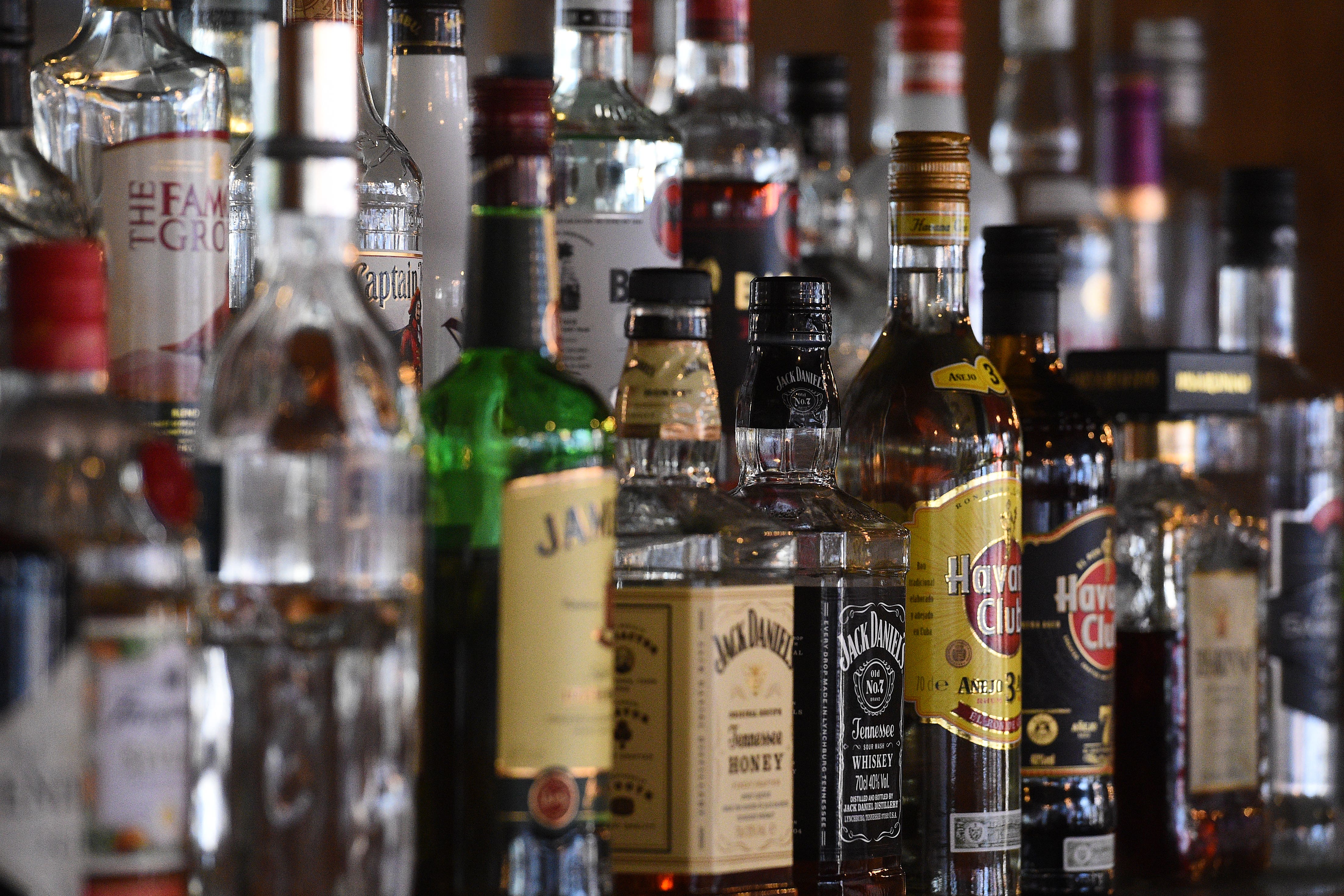Minimum unit pricing for alcohol linked to ‘significant’ reduction in deaths
Research published in The Lancet suggested 156 deaths a year in Scotland have been saved by the policy.

Your support helps us to tell the story
From reproductive rights to climate change to Big Tech, The Independent is on the ground when the story is developing. Whether it's investigating the financials of Elon Musk's pro-Trump PAC or producing our latest documentary, 'The A Word', which shines a light on the American women fighting for reproductive rights, we know how important it is to parse out the facts from the messaging.
At such a critical moment in US history, we need reporters on the ground. Your donation allows us to keep sending journalists to speak to both sides of the story.
The Independent is trusted by Americans across the entire political spectrum. And unlike many other quality news outlets, we choose not to lock Americans out of our reporting and analysis with paywalls. We believe quality journalism should be available to everyone, paid for by those who can afford it.
Your support makes all the difference.Minimum unit pricing (MUP) for alcohol has been linked to a 13% drop in deaths from alcohol consumption, according to a study.
The research, published in The Lancet, suggests 156 deaths per year on average in Scotland may have been prevented due to the pricing policy, which was implemented in May 2018.
Over the two years and eight months since the policy was implemented, researchers found there was a “significant” 13.4% reduction in deaths wholly attributable to alcohol consumption compared to an estimate, using data from England, of the deaths that would have occurred had the legislation not been implemented.
There was a 4.1% reduction in hospitalisations for conditions wholly attributable to alcohol consumption, equivalent to avoiding 411 hospitalisations per year, on average.
Minimum unit pricing (MUP) was introduced to save lives, and this latest report shows it is doing just that
Researchers also found that significant reductions in deaths wholly attributable to alcohol consumption were greatest for men and for those living in the 40% most socio-economically deprived areas of Scotland.
MUP placed a minimum charge of 50p on each unit of alcohol.
The study was conducted by researchers from Public Health Scotland (PHS), the University of Glasgow and the University of Queensland, Australia.
Dr Grant Wyper, public health intelligence adviser at PHS, said: “The greatest reductions were seen for chronic alcohol health harms, in particular alcoholic liver disease, which were slightly offset with less certain evidence of increases in acute alcohol health harms.
“The findings highlight that the largest reductions were found for males, and for those living in the 40% most deprived areas, groups which are known to experience disproportionally high levels of alcohol health harms in Scotland.
“We know that those living in the most socioeconomically deprived areas in Scotland experience alcohol-specific death rates more than five times higher compared to those living in the least deprived areas.
“The results published today are therefore very encouraging in addressing this inequality, and the overall scale of preventable harm which affects far too many people.”
However, researchers found that MUP was associated with an increase in the rate of deaths and hospitalisations due to short-term conditions caused by alcohol consumption, such as alcohol poisoning, although these findings were not said to be statistically significant.
Researchers suggested that one reason for this could be that some people may have reduced their spending on food or lowered their food intake due to the financial pressures of the policy being implemented, which might have led to faster intoxication or poisoning.
The report authors acknowledged some limitations to the study, including that there was an impact on hospital capacity and attendance during the Covid-19 pandemic, which increases the uncertainty of the study findings related to hospitalisations.
The Scottish Parliament must vote before May 1 next year on whether or not MUP will continue.
Professor Daniel Mackay, Professor of Public Health Informatics at the School of Health and Wellbeing, University of Glasgow, said: “The methods we’ve used in this study allow us to be confident that the reduction in alcohol health harms we’ve shown is due to the introduction of MUP, rather than some other factor.”
Scotland’s Public Health Minister Maree Todd welcomed the study, which comes after previous research estimated that alcohol sales had dropped by 3% after MUP.
She said: “I am very pleased with these findings which point to more than 150 lives a year being saved and 411 fewer hospital admissions, further underlining the value of our world-leading minimum unit pricing policy which has helped reduce alcohol sales to their lowest on record.
“We’re determined to do all we can to reduce alcohol-related harm which is one of the most pressing public health challenges that we face in Scotland.”
Dr Alastair MacGilchrist, chair of expert clinician partnership at Scottish Health Action on Alcohol Problems (Shaap), described MUP as a “progressive policy” and said: “Minimum unit pricing was introduced to save lives, and this latest report shows it is doing just that.”